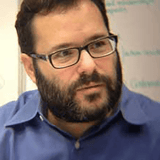Summary
Many of today’s processes and methods for design thinking and UX design feel limited in a world where we use these approaches to solve complex problems. Systems thinking is a mindset and approach that helps designers and researchers broaden their lens and empowers them to increase their impact. Join us for this session with Sheryl Cababa, the author of Closing the Loop.
Key Insights
-
•
Systems thinking integrates interconnectedness, causality, and wholeness to better understand complex problems.
-
•
China's 2018 ban on plastic waste imports caused significant shifts in global plastic pollution dynamics.
-
•
User-centered design often overlooks potential harm, systemic forces, and broader contexts in complex challenges.
-
•
Infinite scroll is an example where ease of use conflicts with societal well-being.
-
•
The One Laptop per Child initiative failed partly due to ignoring community and family context in design.
-
•
Causal loop mapping reveals reinforcing or balancing feedback loops that drive systemic behavior.
-
•
Simpler visualization tools like iceberg diagrams and fishbone diagrams may be more effective than complex systems maps for stakeholder communication.
-
•
The futures wheel method helps anticipate unintended consequences and explore speculative outcomes.
-
•
Considering incentives and potential radiating effects helps avoid the 'Cobra effect' of unintended consequences.
-
•
Engaging multi-disciplinary stakeholders, including academic researchers, enriches systems thinking and decision-making.
Notable Quotes
"Optimizing something for ease of use does not mean best for us or Humanity."
"Today’s problems come from yesterday’s solutions."
"Temporary measures have a nasty habit of becoming lasting emergencies."
"A system is more than the sum of its parts; it may exhibit adaptive, dynamic, goal-seeking, self-preserving, and sometimes evolutionary behavior."
"Systems thinking asks us to look at systems as a whole rather than isolated parts."
"Designers should consider the systemic impact of their work beyond direct user benefits."
"Sometimes you can tell the story of root cause with only two or three causal loops."
"People who solved problems in one part of the system may not see the consequences in another part."
"Over-optimizing for what hasn't happened yet is rare; usually, organizations don’t do enough future impact analysis."
"A truly collaborative effort with diverse stakeholders is essential for effective systems thinking."
Or choose a question:
















More Videos

"Share everything, own nothing but credit everyone."
Zariah CameronReDesigning Wellbeing for Equitable Care in the Workplace
September 23, 2024

"You can have more than one priority at a time because they might have very different value and urgency profiles."
John Cutler Harry MaxPrioritization for designers and product managers (1st of 3 seminars) (Videoconference)
June 13, 2024

"Working in enterprise can feel like chaos with unclear directions and too much noise from new initiatives every six months."
Nick CochranGrowing in Enterprise Design through Making Connections
June 3, 2019

"Pilot and test your ideas before committing whenever possible to avoid unnecessary disruption."
Deanna SmithLeading Change with Confidence: Strategies for Optimizing Your Process
September 23, 2024

"We started the Digital Service as a subsidiary company of the government, not just a government unit."
Magdalena ZadaraZero Hour: How to Get Far Quickly When Starting Your Digital Service Unit Late
November 16, 2022

"We asked people to step out of their comfort zones and do things they'd never done before."
Nova Wehman-BrownWe've Never Done This Before
June 4, 2019

"People don’t always get straight to their questions. They might need to do some investigation first before they figure out the question to ask."
Liwei DaiThe Heart and Brain of the AI Research
March 31, 2020

"By July 2020, more than 4,000 workers had arrived, 35 tested positive during quarantine but there were zero cases on BC farms employing temporary foreign workers."
Gordon Ross12 Months of COVID-19 Design and Digital Response with the British Columbia Government
December 8, 2021

"Sharing my story with the engineering director opened something; vulnerability builds trust."
Tutti TaygerlyMake Space to Lead
June 12, 2021
















